基于单片机的楼宇灯控系统的设计(含电路原理图)
无需注册登录,支付后按照提示操作即可获取该资料.
基于单片机的楼宇灯控系统的设计(含电路原理图)(包选题审批表,含任务书,开题报告,中期检查表,毕业论文25700字)
摘 要:本设计针对楼宇灯具的智能控制方面的发展现状,分析了楼宇灯具智能控制的原理和实现方法,提出了基于单片机的教学楼灯具智能控制系统的设计思路,并在此基础上开发了智能控制系统的硬件装置和相应软件。
该系统以AT89C51单片机作为控制装置的智能部件,采用热释红外人体传感器检测人体的存在;采用光敏三极管构成的电路检测环境光的强度。根据教室合理开灯的条件,系统通过对人体的存在信号和环境光信号的识别和智能判断,完成对教室照明回路的智能控制,避免了教学楼用电的大量浪费。
系统程序采用汇编语言编制,采用模块化结构设计,便于改进和扩充。该系统可以满足各类大、中专院校教室灯具控制的要求,很大程度的达到节能目的。
关键词:智能灯控;单片机;红外线;人体;环境光照
Design of Building Light Charge System Based on MCU
Abstract: Currently light intelligent control systems are not efficiently used in the buildings. In order to improve the system, based on the theory of the light control and current methods of how to keep control, put forward methods of developing intelligent light control system on the basis of AT89C51 for school buildings, and developed the hardware and software of the system.
This classroom light intelligent control system is developed, which machine of AT89C51 is a major part, and the environment of development is better than before. This system can satisfy the following functions, such as controlling the circuit of illumination, testing and processing daylight signal, testing and processing the signal of human body that illuminates the back track exists. In order to satisfy these functions, the system adopted the homologous methods respectively, and to the gearing of the system, analyzing how to install, test and run the system.
The microcontroller software was developed based on assemble language. Assemble language adopts building block design, its commonality is very good and easy to improve and expand. The experiment proved that the system can satisfy the control command of the classroom’s light device, so it could largely reduce the consuming of energy resources.
Key words: Intelligent light control; SCM; Infrared ray; human body; ambient light
研究内容
本课题的研究内容有如下几点:
(1)了解教室照明光强的标准;
(2)调研教室灯光照明需求;
(3)研究人体存在探测技术,探测角度与范围;
(4)研究传感器在教室分布、安放问题,一灯一个传感器或多灯公用传感器等;
(5)研究确定人体传感器的有关参数;
(6)研究灯光控制器电源问题;
(7)研究控制器参数值设定的要求及方案;
(8)研究人工设置参数、掉电保存参数的问题;
(9)研究断电情况下的应急照明问题;
(10)研究与现有教室照明相兼容,易替代,不易被偷盗、被仿制,易于维护、维修等控制技术。
研究目标
研究的楼宇灯光控制系统能用于现有教室照明系统的改造,实现对照明系统的人性化智能管理,提高用电效率;实现自动、手动灯具控制相兼容,以降低成本;通过反复试验和改进,最终达到可靠性、实用性、推广性较好的目标。
本课题拟解决的关键问题
本课题拟通过试验研究教室灯光的各种控制方案解决如下关键问题:
(1)照明回路的控制回路与控制器本身的节能问题;
(2)传感器与教室灯配合安装的问题;
(3)断电时延时照明问题;
(4)人体存在传感器参数输入采集问题;
(5)开、关灯的自动与手动兼容措施。
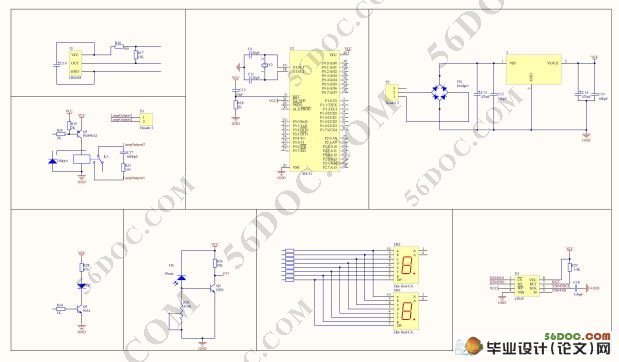
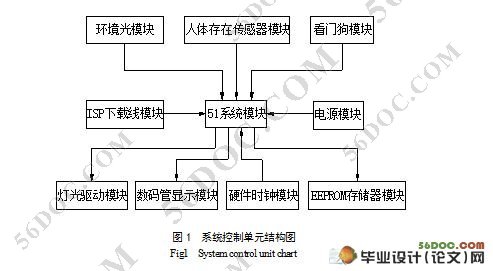
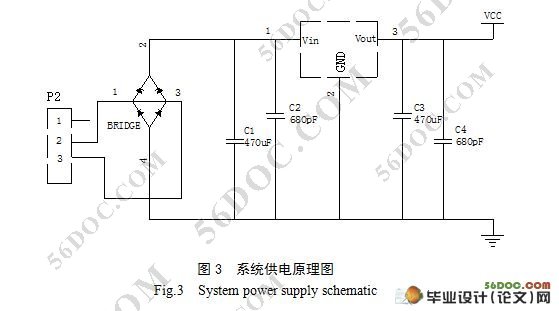
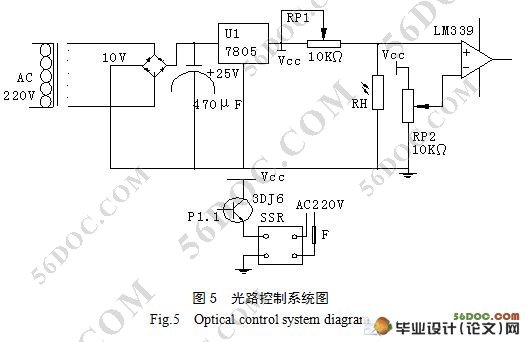
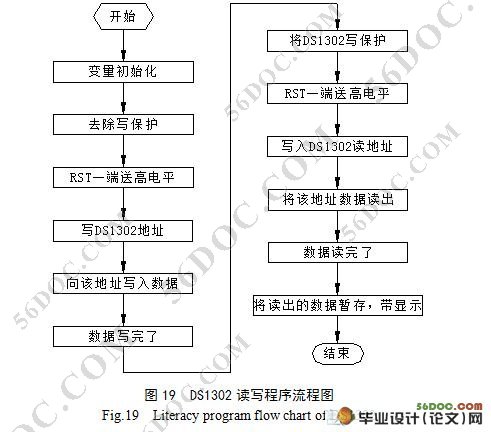
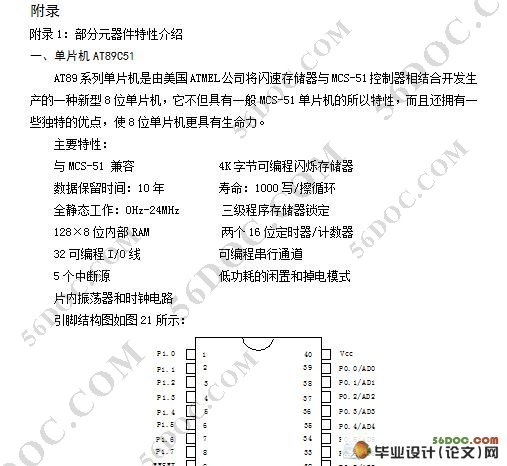
#p#副标题#e#
目 录
摘要 1
关键词 1
1 前言 2
1.1 本课题研究的意义 2
1.2 国内外灯光控制器研究的现状及其存在的问题 3
1.3 本课题研究的内容和目标 4
1.3.1 研究内容 4
1.3.2 研究目标 5
1.4 本课题拟解决的关键问题 5
2 教室灯光控制系统简介及控制方案的分析 5
2.1 教室灯控系统简介 5
2.2 系统控制方案的比较分析与论证 6
2.2.1 控制器模块的设计方案论证与选择 6
2.2.2 电源方案的论证与选择 6
2.2.3 系统模块的最终方案 6
3 系统控制模块的硬件设计 7
3.1 控制模块的硬件构成 7
3.2 控制系统的主要硬件电路 8
3.2.1 系统主控电路 8
3.2.2 在线编程模块电路 8
3.2.3 系统供电电路 9
3.2.4 数据采集电路 10
3.2.5 系统时钟电路 13
3.2.6 系统看门狗电路 14
3.2.7 继电器驱动接口电路 16
3.2.8 应急照明电路 17
4 控制模块的软件设计与开发 18
4.1 系统监控主程序模块 18
4.1.1 系统自检初始化 19
4.1.2 定时中断处理 20
4.1.3 多任务操作系统的构建 20
4.2 数据采集模块 21
4.2.1 人体存在传感器的优缺点 21
4.2.2 数据采集软件设计的实现 21
4.2.3 人体存在传感器的抗干扰措施 24
4.2.4 人体存在传感器的安装要求 25
4.3 时钟模块 25
4.3.1 数据输入输出 25
4.3.2 时钟内部寄存器的使用 25
4.3.3 时钟自检初始化 27
4.3.4 时钟程序设计 28
4.4 显示驱动模块 29
4.4.1 ULN28O3驱动器的应用 29
4.4.2 显示程序设计 30
5 系统调试运行及问题分析 30
5.1 单片机系统调试 30
5.1.1 调试方法及步骤 30
5.1.2 出现的主要问题及分析解决 31
6 结论和建议 32
6.1 结论 32
6.2 建议 33
参考文献 34
致谢 36
附录 37
